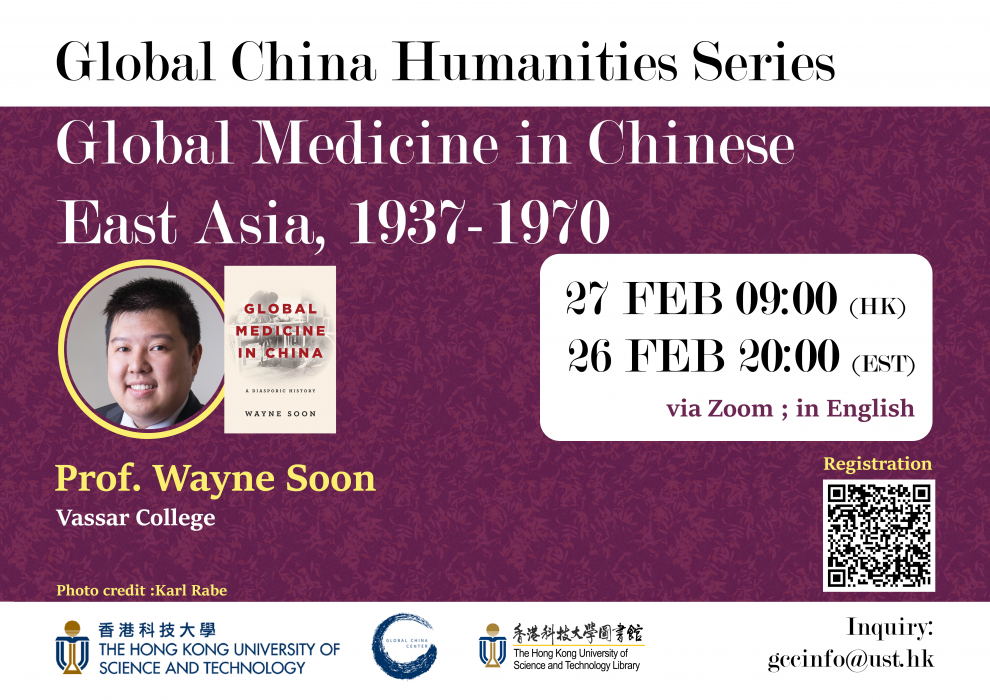About Global China Humanities Series 全球中國人文講座
The Center launches its inaugural Global China Humanities Lecture Series in February 2021. We invite internationally renowned scholars and young, first-book authors to discuss their latest works on topics ranging from Cold War history, diaspora studies, global medicine to literature.
香港科技大學全球中國中心舉辦全新的人文講座系列。我們邀請國際知名的學者、剛推出首本著作的年青學人來探討冷戰史、離散研究、全球醫療史、文學史等等課題。
每次講座先由講者演講50-60分鐘,隨後有30分鐘的問答時間。講座免費,公眾人士均可報名參與,惟必須先報名。講座將以中文或英文進行。
GLOBAL CHINA HUMANITIES SERIES: Global Medicine in Chinese East Asia, 1937-1970
Prof. Wayne Soon 孫世倫教授 (Vassar College)
27th February 2021 (Sat) 9:00 (HK), 26th February 2021 (Fri) 20:00 (EST)
Language: English
Please REGISTER HERE to secure your place

Abstract:
By examining two case studies on how the Chinese diaspora came to shape biomedicine in China and Taiwan from 1937 to 1970, my new book makes the case of the concept of "global medicine." "Global medicine" highlights the multivalent and multidirectional flows of medical practices and ideas circulating the world that shaped Chinese East Asia in the 20th century. The first case study examines how Chinese American women medical personnel established the first Chinese blood in New York and Kunming, China. Second, this talk reveals how Singapore-born and Edinburgh-educated Dr. Robert Lim successfully relocated the National Defense Medical Center from China to Taiwan in 1948 despite the Chinese Civil War's longstanding challenges. This presentation highlights the critical intersections of scientific expertise, political freedoms, and diasporic power in shaping global medicine in China and Taiwan through a critical examination of these two medical encounters between the diaspora and the local Chinese and Taiwanese.
About the Speaker:
WAYNE SOON (PhD Princeton) is an Assistant Professor of History at Vassar College. His book, Global Medicine in China: A Diasporic History (Stanford University Press, 2020), tells the global medical histories of Chinese East Asia through the lens of diasporic Chinese medical personnel, who were central in introducing new practices of military medicine, blood banking, mobile medicine, and mass medical training to China and Taiwan. Universal care, practical medical education, and mobile medicine are all lasting legacies of this effort on both sides of the Taiwan Straits. Dr Soon’s published and forthcoming articles can be found in Twentieth Century China, Bulletin of the History of Medicine, American Journal of Chinese Studies, and East Asian Science, Technology and Society: An International Journal.